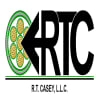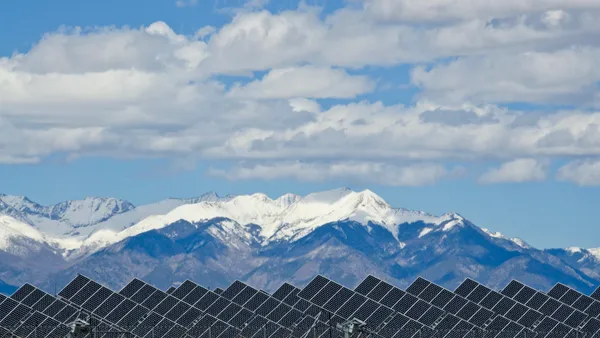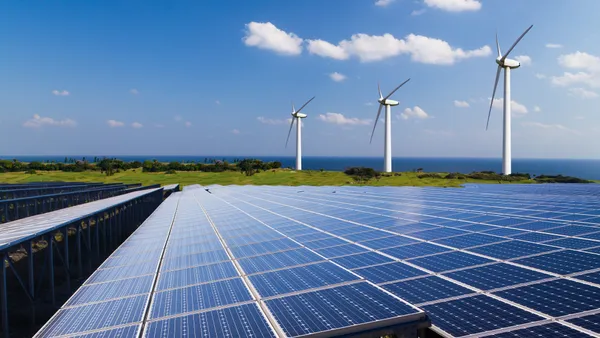Dive Brief:
- The New York Public Service Commission (PSC) has suspended all caps on retail rate net metering for rooftop solar until the state's Reforming the Energy Vision (REV) proceedings set values for distributed energy resources (DERs), RTO Insider reports.
- Until the completion of that valuation process — slated for the end of 2016 — owners of distributed generation (DG) will continue to receive retail rate remuneration for electricity sent to New York’s grid. The ruling came in response to an Orange and Rockland Utilities (ORU) petition for permission to suspend DER interconnections because they had reached the 62 MW, or 6% of load, cap on net metered systems.
- The ruling (15-E-0407) applies to all six New York investor-owned utilities and requires them to file NEM tariff revisions by Oct. 30, to be effective Nov. 6. The PSC rejected ORU’s proposal to replace the existing NEM remuneration with a plan in which DG owners sell their system’s output at a wholesale rate, but buy their electricity from the grid at the retail rate.
Dive Insight:
Rather than making an effort to anticipate how the REV valuation process will come out, the commission wrote, “utilities shall accept all interconnection applications and continue to interconnect net metered generation without measuring the DG capacity.”
Before reaching their decision, commissioners debated whether lifting the caps or leaving the caps in place would create a greater rush for installations by people seeking to be grandfathered into the retail rate remuneration program.
A New York Department of Public Service (DPS) white paper, issued under track two of the REV docket, proposes comprehensive reforms to current utility ratemaking practices and revenue models. At its core, the REV process aims to convert utilities into distribution service providers (DSPs) — impartial entities that will own and maintain while facilitating the connection of various distributed resources.
Comments on track two of the REV docket, which aims to iron out many of the details associated with converting utilities into DSPs, are due on Oct. 26.














